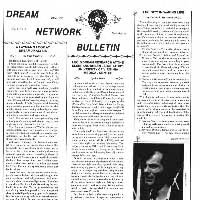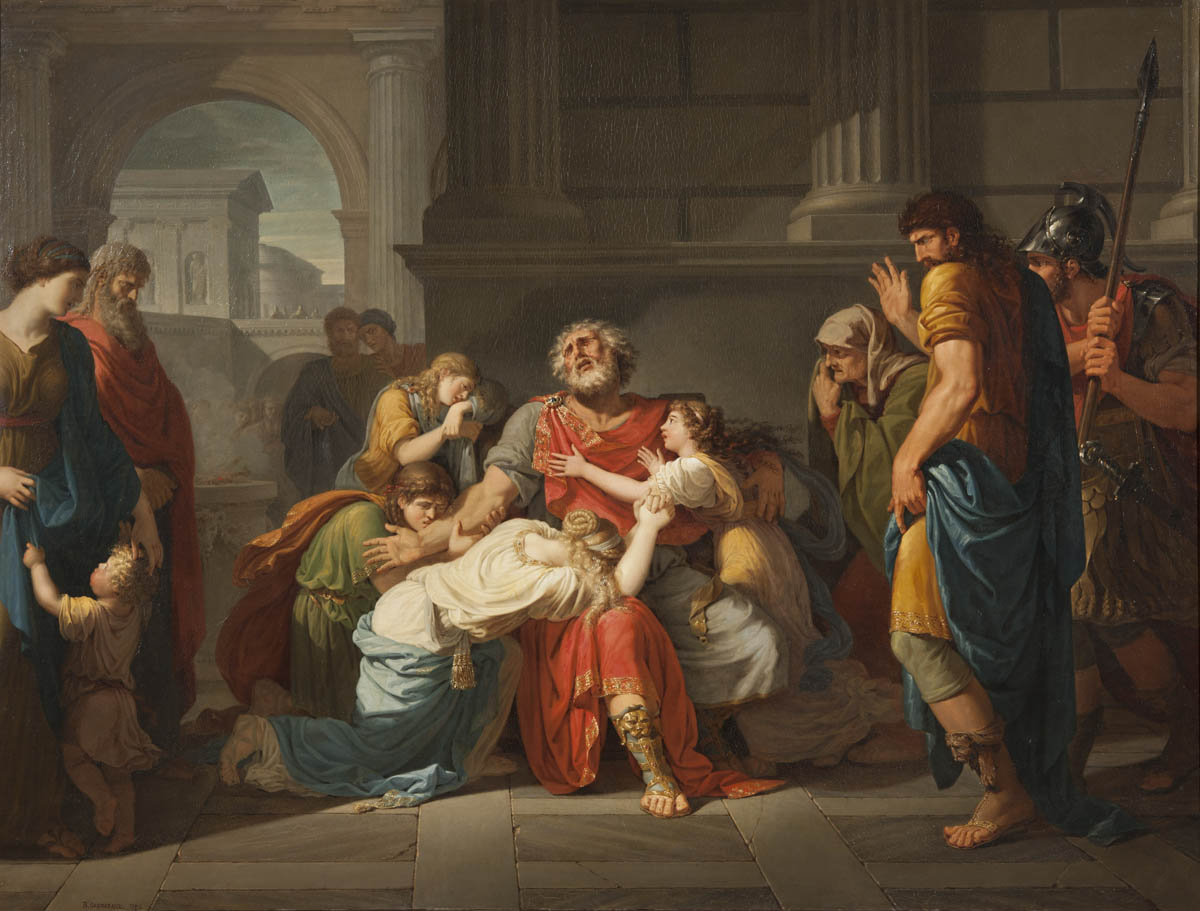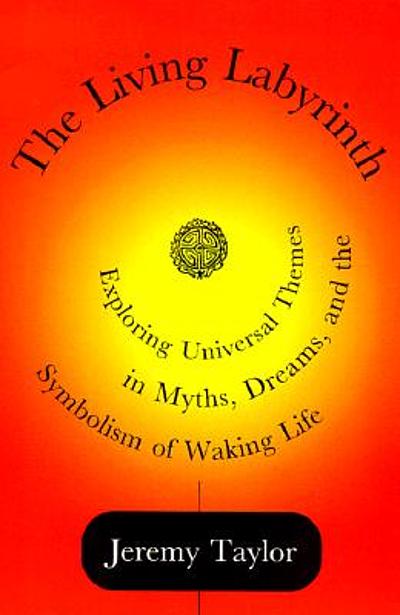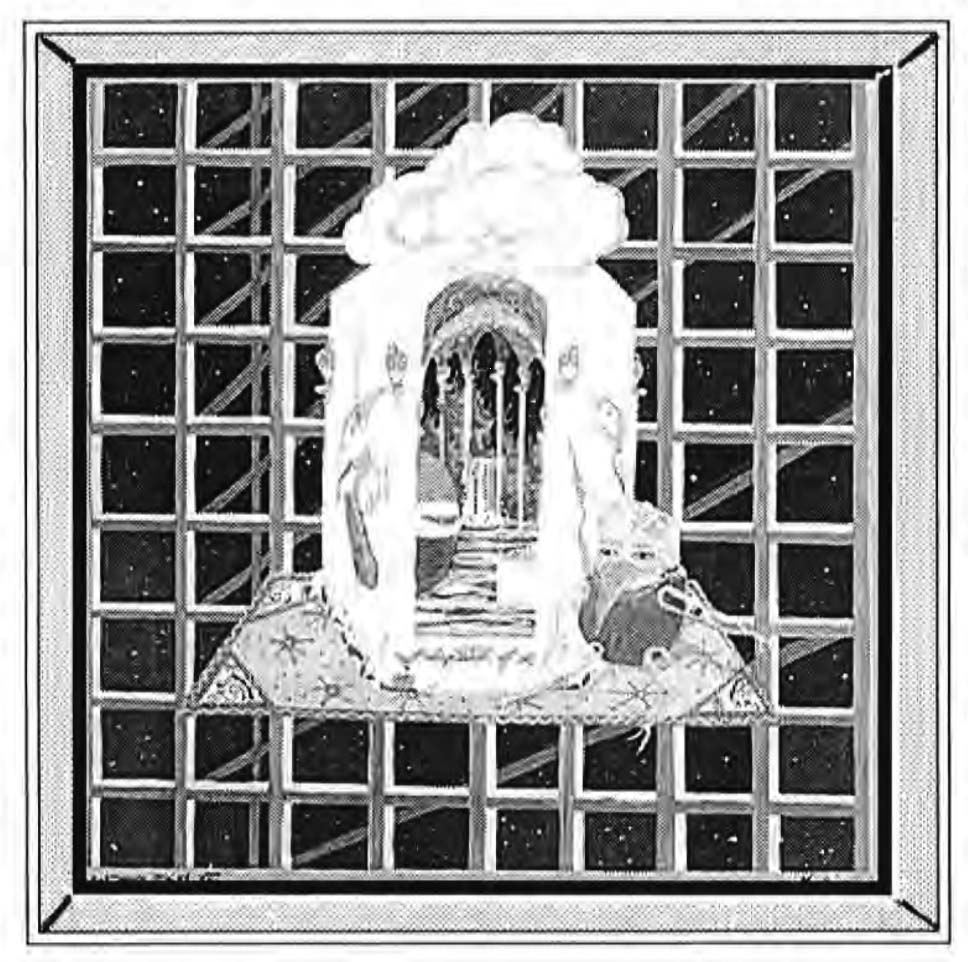
Awakening from a dream in the early hours of the morning, I felt unsettled. A child was going to be raped and my mother and I were willing to let it occur! "What is happening to me psychically that feels like rape?" I wondered. Over the next several weeks, active imagination, word association and other techniques helped unveil an intricate, tightly woven web of undetected patterns. Placing a mythical template over the dream expanded and rerouted the message into a distressing, but hopeful, history of the stifled voice of the feminine. Here's the dream:
My deceased mother stands at a changing table and changes the soiled diaper of an infant girl. I stand to her left, also at the changing table. My brother, Mark, enters between us. He enlists my help by whispering in my ear, "You need to back me up on this" I intuit danger, but instantly push the sensation away. He then turns to my mother and states in a firm, demanding voice, "I want to take the baby an a date." This girl, though an infant now, is also an immature, 20-something-year-old woman and my brother's intention is to take her out and rape her. Mother implies that she is done changing the baby and the child is ready to go. I look over at the newborn and her diaper is so full of loose, slimy feces that the diaper is abnormally distended and overflowing up her torso and down her legs. I look at my mother and annoyed, I ask, "Are you going to let her go like this?" Mother seems perplexed and unsure of what to do. She thinks the baby is ill, but I know that the child is not sick. She has ingested too many vegetables and needs to be cradled and rocked.
To help unravel the intricacies of this disconcerting scene, several friends and I reenacted the dream in a 'dream theater' setting. In a candle lit room, I played the role of the baby and laid on a couch that substituted for a changing table. On their knees, others acted as my mother, brother and me. As I lay on my back, imagining myself back into the dream, I felt the warmth of the old woman's body radiating next to me as she changed my diaper. No emotional connect ion existed between us. She didn't play with me, caress me or smile at me. Her job was to complete the task of changing my diaper. When the man entered, I heard and understood his whisper to the middle-aged woman. When he turned to the elder woman and demanded, "I'm going to take the baby on a date," I became alarmed. I knew that he intended to rape me and I knew that the women understood that too. I desperately hoped that they would protect me, push him away and throw him out of the room . But when I heard the middle-aged woman say, "Are you going to let her go like that?" I became panic-stricken and my bowels let loose. They planned to release me into the custody of a rapist! In addition to working the images symbolically, I examined the gestures, movements and appearances of the dream characters. For instance, the look on the dream character of my deceased mother reflects a despondent look in her gray-blue eyes. All of her life, mother struggled with chronic depression and obsessive-compulsive disorder. The dream accurately represents her despondency to her surroundings. She tends to the child robotically, withholding any tenderness, cooing or touching . She must be reminded to change the overflowing diaper indicating that her maternal instincts are defunct.
The infant, though a child in this scene, has the ability to change into a 20-something-year-old woman - the age she will be when Mark abducts her. In addition, this girl/woman has a slow, intellectually flawed peculiarity about her. Her submissiveness and imperfection makes it easier for me not to care about her well being - something I learned from my younger years: if you're not perfect, you're not worth attention.
The destructive, pessimistic relationship with my mother, or the mother archetype, is constellated in this dream. Though negative, this maternal connection offered me a form of security and safety. Because l experienced only the non-affirming side of the archetype, an encounter with the positive mother now feels threatening and destructive. The dream demonstrates this. I blindly and implicitly agree to my brother's request without knowing his intent and ignore the danger that I intuitively sense. After I learn that he wants to rape the child, I stand rigidly, my feet firmly planted facing the changing table. I repeat a learned pattern of focusing my attention elsewhere, tuning out my feelings, moral principles and the child's well being to accommodate another's request. This inability or unwillingness to acknowledge the horror of my brother's intention is also demonstrated and reflected in the zombie-like expression of my mother, connect ing a generational diffusion of emotional crippled-ness and broken maternal instincts. Though I know that the child needs the warmth of human contact (cradling and rocking), I don't offer it.
My mother thinks the baby is ill; but I know that her diarrhea is a result of consuming too many vegetables - a sneaky indication that Demeter, the vegetation goddess, may be at work. This Geek goddess has a depressive and compulsive attribute. When Hades abducts her daughter, Persephone, into the underworld, Demeter obsessively searches for her kidnapped child. Her despondency festers and perpetuates patterns of personal torment manifested by her long, compulsive crusade to find her daughter. When Persephone is finally released from the underworld, Demeter's joy quickly dissipates when she learns that her daughter has ingested pomegranate seeds and now must be shared with Hades. So wrapped in longing and anguish. the mother goddess cannot see beyond her personal needs and desires.
A mother's grief over the kidnapping of her daughter certainly can trigger depression. However, it is Demeter's unwillingness to psychologically separate herself from Persephone that prolongs her misery. The abduction forces Demeter to loosen her suffocating grip around Persephone's neck so she can breathe.
The atmosphere of my childhood household stifles me today, I clutch tightly to obsessive behaviors like the need for 'perfection' and compulsively compare myself to others. Inevitably, my faults win the contest and my failures anesthetize me from too much happiness, anger or self-expression. Much like Persephone who was trapped in the firm grasp of her mother, these old patterns must be discarded in order to inspire new life into a deadened world.
Initially, I labeled the rapist in this dream motif as destructive, negative, out to obliterate the budding feminine. But viewed mythically, Persephone's abduction into the underworld moves her soul from being Demeter's daughter to being Hades' wife. In other words, abduction is necessary to molt from a too restraining, obsolete, virginal cocoon that once tightly wrapped me in a blanket of protection.
Moving from a personal to a collective interpretation, the dream reflects the generational presence of virgin/Persephone, mother/Demeter and crone/Hecate. However, the mother-daughter affection between Persephone and Demeter is deadened, characterizing a culture that has lost its memory of mothering. The crone's vacant stare and her compassionless contact with the virgin/child reveals a short-circuiting of maternal instincts. These hypnotic actions of the old woman are mirrored in the stiff, mechanical movements of mother/Demeter and her reluctance to protect the baby from molestation. Mother/Demeter is following in the footsteps of the coldhearted old woman.
The slow, retarded nature of the child, a shared characteristic of the unhurried feminine, suggests our cultural disdain for anything that lacks bright, masculine qualities, such as a 'defective' child, the dark side of human nature or the time-consuming process of individuation. The crone and mother have lost their strength, their voice, to defend against the power, lust and thrust of the masculine. If they take a defiant stand, they will be verbally undressed and shouted back into submission further silencing their voices.
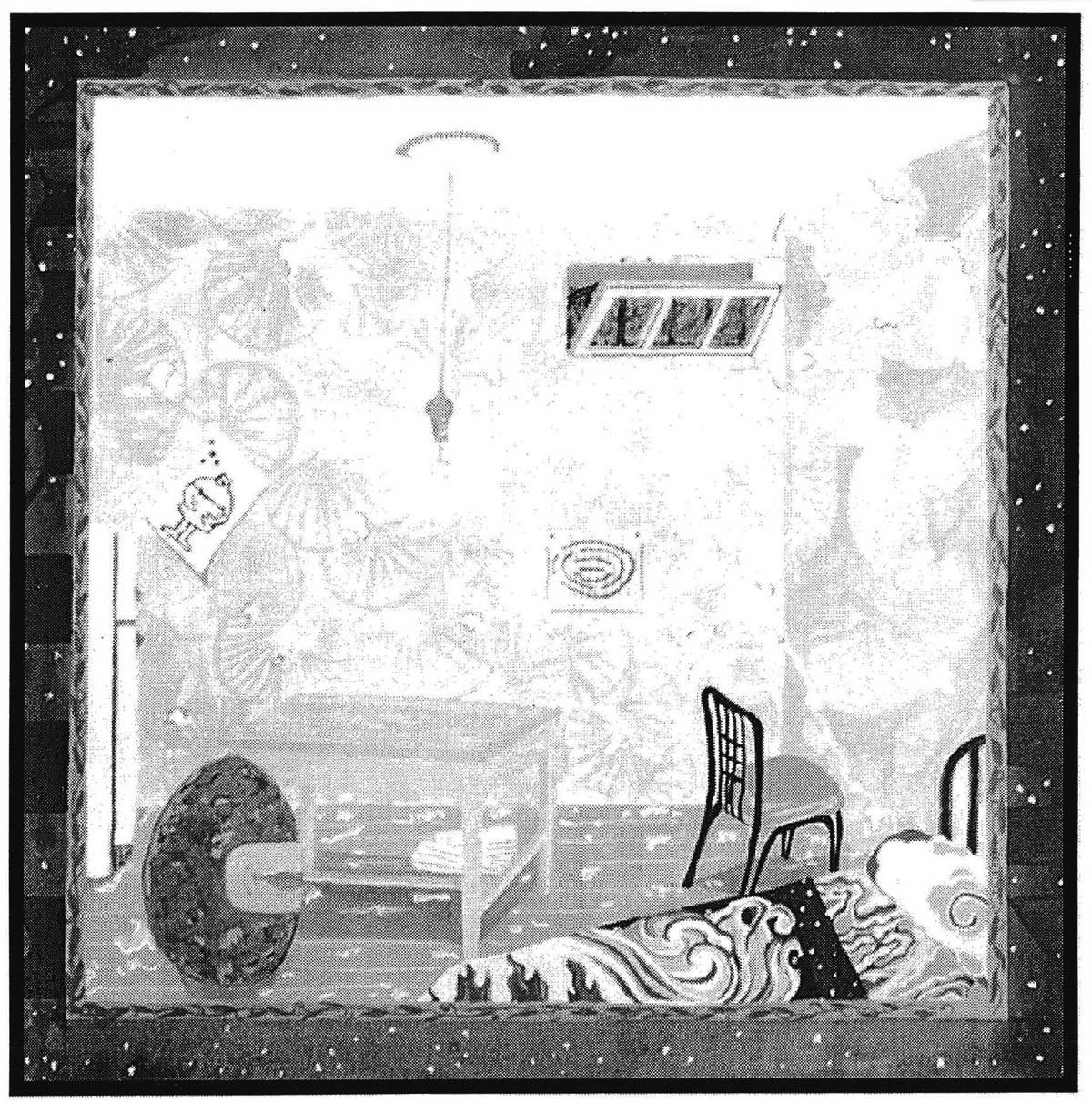
All too frequently, women who give away their power to outer authorities are frozen in a paradox. If they take a feminine stance, they risk being laughed at, ridiculed or cajoled back into their shell perpetuating their deep freeze. Our 2,000-year history of feminine slander grounds women in the distrust of their own feelings. Hence, we put our faith into the hands of outer authorities that we believe know us better than we know ourselves.
For example, within the last century, home births were believed to be too primal and women stopped delivering their babies at home. Science proved it more sophisticated for women to lay upon sanitary hospital beds with legs constrained in stirrups as we pushed babies out of our wombs without the gravitational help of nature. Breast-feeding was viewed as too animal-like, so hard, sterile bottles took the place of mother's nipples. Our milk production was interrupted with injections to prevent the tingling in our bosoms when our babies cried.
We are taught to ignore our instincts, no matter how our aching bodies scream for attention. Though many natural childbirth techniques have been restored, control over our bodies still is manipulated by outside powers. We starve our bodies to conform to advertising images that warn against fleshy thighs, voluptuous breasts or saggy abdomens stretched from pregnancy. We suck the cellulite from our dimpled legs, jog away unwanted pounds and refuse our bodies sweet cravings in order to stay in the size eight dress. We worship a pencil-thin model/goddess and scorn the image of the round, bulbous figure of the Great Mother.
Like us, our mothers and our mothers' mothers, young girls have no role model to initiate them into the power and dignity of womanhood so they easily fall prey to shallow, misleading trends. Unaware of the archetype of the wise woman, healer and transformer, the crone, we cringe when she speaks her straight talk of clear-sighted visions. Women who don't know their own voice and try to placate, overprotect or manipulate others often shy away from this centeredness searching for more common and comfortable surroundings and excommunicating those who have learned to speak their opinions from the musculature of their bodies.
But the dream suggests that women are feeling the pinch of their old, soiled, infantile existence. After all, the mother knows that the child needs to be cradled and rocked - proof that a trace of maternal instinct remains int act. A seed of wisdom still burns under the weakened, automated exterior of mother and crone. Deep down, the women understand that the child must be penetrated, shocked out of her sheltered lifestyle by an underworld experience in order to transform. The frozen rigidity from unmothered, crone-lacking consciousness mourns to be thawed so a more mature union with the masculine world can be wed.
Persephone is snatched while Demeter isn't looking - or, in this case of the dream, the capacity to prevent the abduction is impossible. A healthy, well-adjust ed mother never would voluntarily release her daughter into the hands of Hades. But much like our children, Persephone must find her own way, no matter how painful the experience is for mother and daughter. Persephone will return as a different, more 'underworldly' woman. If she has a wise-woman guide like Hecate, she will learn to be a daughter to her mother and a wife to her husband.
The dream image of a changing table prompts the idea that transformation is afoot. If women - and men - are shedding their cocoons and embracing the feminine parts of themselves, perhaps our sterile, barren world will once again bloom.


